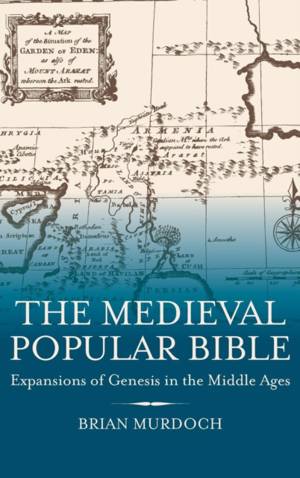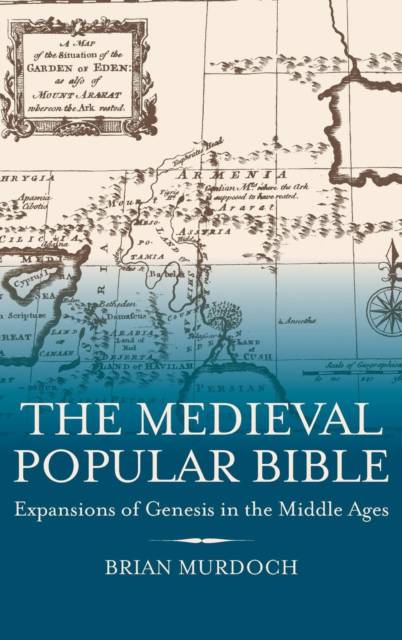
- Afhalen na 1 uur in een winkel met voorraad
- Gratis thuislevering in België vanaf € 30
- Ruim aanbod met 7 miljoen producten
- Afhalen na 1 uur in een winkel met voorraad
- Gratis thuislevering in België vanaf € 30
- Ruim aanbod met 7 miljoen producten
Zoeken
The Medieval Popular Bible
Expansions of Genesis in the Middle Ages
Brian Murdoch
Hardcover | Engels
€ 177,45
+ 354 punten
Omschrijving
What was meant by the medieval popular Bible - what was presented as biblical narrative to an audience largely unable to read the original biblical texts? Presentations in the vernacular languages of Europe of supposedly biblical episodes were more often than not expanded and interpreted, sometimes very considerably. This book looks at the presentation, the use, and the possible lay reception of the book of Genesis, taking into consideration Irish, Cornish, English, French, High and Low German, Spanish, Italian and other literatures. Genesis was an important book, and the focus is on those narrative high points which lend themselves most particularly (it is never exclusive) to literal expansion, even though allegory can also work backwards into the literal narrative. Starting with the devil in paradise (who is not biblical), the book examines what Adam and Eve did afterwards, who killed Cain, what happened in the flood or at the tower of Babel, and ends with a consideration of the careers of Jacob and Joseph. BRIAN MURDOCH is Professor of German at the University of Stirling.
Specificaties
Betrokkenen
- Auteur(s):
- Uitgeverij:
Inhoud
- Aantal bladzijden:
- 219
- Taal:
- Engels
Eigenschappen
- Productcode (EAN):
- 9780859917766
- Verschijningsdatum:
- 27/03/2003
- Uitvoering:
- Hardcover
- Formaat:
- Genaaid
- Afmetingen:
- 159 mm x 247 mm
- Gewicht:
- 521 g

Alleen bij Standaard Boekhandel
+ 354 punten op je klantenkaart van Standaard Boekhandel
Beoordelingen
We publiceren alleen reviews die voldoen aan de voorwaarden voor reviews. Bekijk onze voorwaarden voor reviews.








